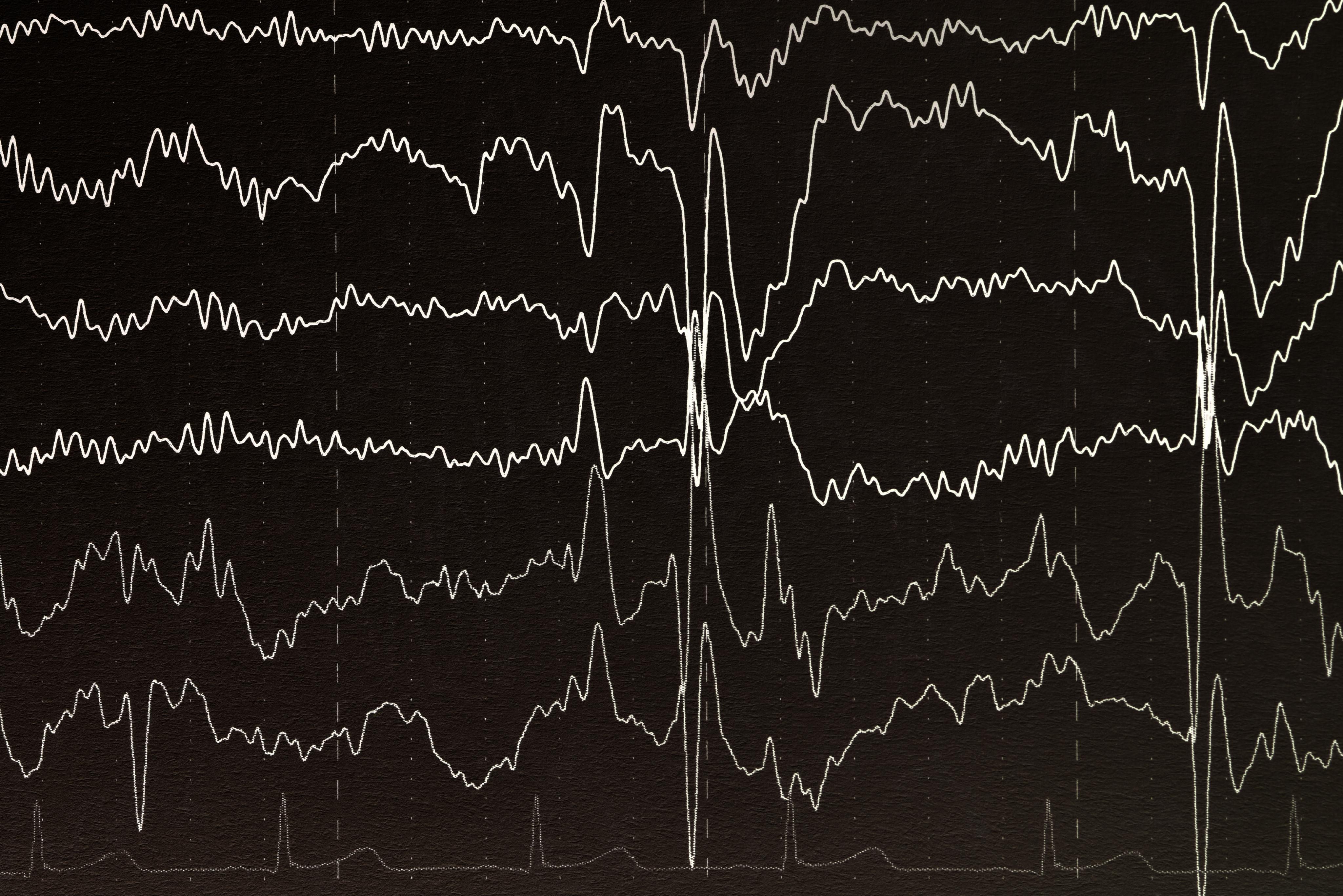Medical Seizure In Spanish: Your Ultimate Guide To Understanding And Managing Epileptic Seizures
Imagine this—you’re traveling to a Spanish-speaking country, and suddenly someone nearby experiences a seizure. Would you know how to respond? Or maybe you’re learning Spanish and want to understand medical terms related to seizures. Whatever your reason, understanding "medical seizure in Spanish" is more important than you might think. In this article, we’ll dive deep into everything you need to know about seizures, their terminology in Spanish, and how to handle them effectively.
Seizures are serious medical conditions that can happen to anyone, anywhere. If you or someone you know has epilepsy, knowing the right terms in Spanish could make a world of difference in an emergency. This isn’t just about language—it’s about being prepared and informed.
So, buckle up because we’re about to take you on a journey through the world of seizures, their types, symptoms, and most importantly, how to communicate about them in Spanish. Whether you’re a traveler, a caregiver, or simply curious, this guide will give you the tools you need to stay ahead of the game.
- Mark Harmon Actor Biography
- Pictures Of Aircraft Crash Victims
- Las Vegas Raiders Background
- Fun Facts Dingo
- Lisa Marie Presley With Twins
What is a Medical Seizure?
A medical seizure refers to a sudden burst of electrical activity in the brain that can cause changes in behavior, movement, or consciousness. It’s often associated with epilepsy, a neurological disorder that affects millions worldwide. Understanding what a seizure is and recognizing its signs is crucial for timely intervention.
Seizures come in different shapes and sizes—or rather, types. Some may involve convulsions, while others might just cause a momentary lapse in awareness. Knowing these differences is key to providing the right kind of help.
Common Types of Seizures
- Tonic-Clonic Seizures: The most well-known type, characterized by stiffening and jerking movements.
- Absence Seizures: Brief episodes where a person seems to "zone out" for a few seconds.
- Focal Seizures: Affect only one part of the brain, leading to localized symptoms like twitching or altered sensations.
These classifications help doctors determine the best course of treatment. But what happens when you’re in a Spanish-speaking environment? That’s where knowing the right terminology comes in handy.
- The Jackson 5 Film
- Colin Morgan 2023
- Starting Lineup Boston Celtics
- Who Is Tameka Foster
- How Are The Jenners And Kardashians Related
Medical Seizure in Spanish: Key Terms to Know
When it comes to medical emergencies, clear communication is vital. Here’s a quick rundown of essential terms related to seizures in Spanish:
- Convulsión: The general term for a seizure.
- Epilepsia: Epilepsy, the condition often associated with seizures.
- Ataque: Another common term for a seizure, especially in casual conversation.
- Perdida de Conciencia: Loss of consciousness, a symptom often linked to seizures.
These terms are your starting point. But let’s go deeper into how these words fit into real-life scenarios.
How to Describe Symptoms in Spanish
Describing symptoms accurately can speed up the process of getting help. Here are some phrases you might need:
- Está temblando: He/she is shaking.
- No responde: He/she is not responding.
- Los ojos se le han puesto en blanco: His/her eyes have rolled back.
By using these phrases, you can convey critical information quickly and effectively.
Understanding the Causes of Seizures
Seizures can be triggered by various factors, including brain injuries, infections, or even genetic predispositions. While epilepsy is a common cause, other conditions like low blood sugar or drug withdrawal can also lead to seizures.
In Spanish, you might hear terms like:
- Lesión cerebral: Brain injury.
- Infección: Infection.
- Genética: Genetics.
Knowing these causes can help you identify potential risks and take preventive measures.
Preventing Seizures: Tips for Caregivers
If you’re caring for someone with epilepsy, there are steps you can take to reduce the likelihood of seizures:
- Ensure they take their medication on time.
- Avoid known triggers like flashing lights or lack of sleep.
- Encourage a healthy lifestyle with regular exercise and a balanced diet.
These tips apply universally, but if you’re in a Spanish-speaking country, it’s helpful to know how to discuss these topics with healthcare providers.
Handling a Seizure Emergency
So, what do you do if someone near you has a seizure? First, stay calm. Then, follow these steps:
- Protect the person from injury by moving objects out of the way.
- Turn them onto their side to prevent choking.
- Do not put anything in their mouth.
- Call emergency services if the seizure lasts longer than five minutes.
In Spanish, you might say:
- Protéjalo de lesiones: Protect them from injury.
- Llame a emergencias: Call emergency services.
Being prepared can save lives.
Communicating with Healthcare Providers
If you’re in a Spanish-speaking country, knowing how to communicate with healthcare providers is crucial. Here are some phrases that might come in handy:
- Necesita ayuda médica: He/she needs medical help.
- Tiene epilepsia: He/she has epilepsy.
- El ataque duró aproximadamente cinco minutos: The seizure lasted about five minutes.
These phrases can bridge the language gap and ensure proper care.
Living with Epilepsy: A Day-to-Day Perspective
For those living with epilepsy, managing seizures is a daily challenge. From keeping track of medication to identifying triggers, there’s a lot to consider. But with the right tools and support, it’s possible to lead a fulfilling life.
In Spanish, you might hear:
- Gestión de la medicación: Medication management.
- Identificación de desencadenantes: Trigger identification.
- Apoyo emocional: Emotional support.
These aspects are integral to managing epilepsy effectively.
Building a Support Network
Having a strong support network is key to coping with epilepsy. Whether it’s family, friends, or support groups, surrounding yourself with understanding people can make a huge difference.
In Spanish, you might join:
- Grupos de apoyo: Support groups.
- Comunidades en línea: Online communities.
These resources can provide valuable insights and encouragement.
Medical Seizure in Spanish: Resources and Tools
There are plenty of resources available to help you learn more about seizures and epilepsy. From online courses to mobile apps, technology has made it easier than ever to stay informed.
Some recommended resources include:
- Centro Epiléptico Nacional: National Epilepsy Center.
- Asociación Española de Epilepsia: Spanish Epilepsy Association.
- Aplicaciones de salud: Health apps that track seizures and medication schedules.
These tools can empower you with knowledge and practical assistance.
Staying Updated with Research
The field of epilepsy research is constantly evolving. New treatments and therapies are being developed all the time, offering hope to those affected by seizures.
Some recent breakthroughs include:
- Nuevos medicamentos: New medications with fewer side effects.
- Terapia génica: Gene therapy as a potential cure.
- Dispositivos neurológicos: Neurological devices that detect and prevent seizures.
Staying informed about these advancements can help you make better decisions about your health.
Conclusion: Empowering Yourself with Knowledge
In this article, we’ve covered everything from the basics of seizures to the importance of understanding medical terminology in Spanish. Whether you’re a traveler, caregiver, or someone living with epilepsy, knowing how to communicate effectively in any language is invaluable.
Here’s a quick recap of what we’ve discussed:
- Seizures are serious medical conditions that require prompt attention.
- Knowing key terms in Spanish can help you communicate better in emergencies.
- Prevention and management strategies can reduce the risk of seizures.
- Resources and support networks are available to help you stay informed and connected.
So, what’s next? Share this article with someone who might find it useful. Leave a comment below with your thoughts or questions. And most importantly, take charge of your health and well-being. Together, we can make a difference.
Table of Contents
Article Recommendations
- Price Of Gas At Bj S Wholesale
- Houston Dynamo Vs Columbus Crew Lineups
- Northfield Newspaper
- How Many Games Are There In The Nfl Regular Season
- Caitlin Clark Dual Citizenship Canada



Detail Author:
- Name : Dr. Florence Schamberger
- Username : effertz.tess
- Email : cbins@fisher.com
- Birthdate : 1994-05-14
- Address : 9027 Daren Trail South Abner, NM 47036
- Phone : 1-541-754-5652
- Company : Veum-Maggio
- Job : Gas Compressor Operator
- Bio : Quo est pariatur ea voluptatem. Est qui eius maxime qui consequatur nihil qui animi. Ut sint et deserunt eos. Enim nostrum voluptatum consequatur dolorum dolor.
Socials
linkedin:
- url : https://linkedin.com/in/gunner9931
- username : gunner9931
- bio : Dolor minima sit voluptatem ab rem molestiae.
- followers : 4650
- following : 1136
instagram:
- url : https://instagram.com/bauch1984
- username : bauch1984
- bio : Qui consequatur natus et explicabo tempore laborum. Et ut hic laudantium accusantium dolores.
- followers : 6718
- following : 2781